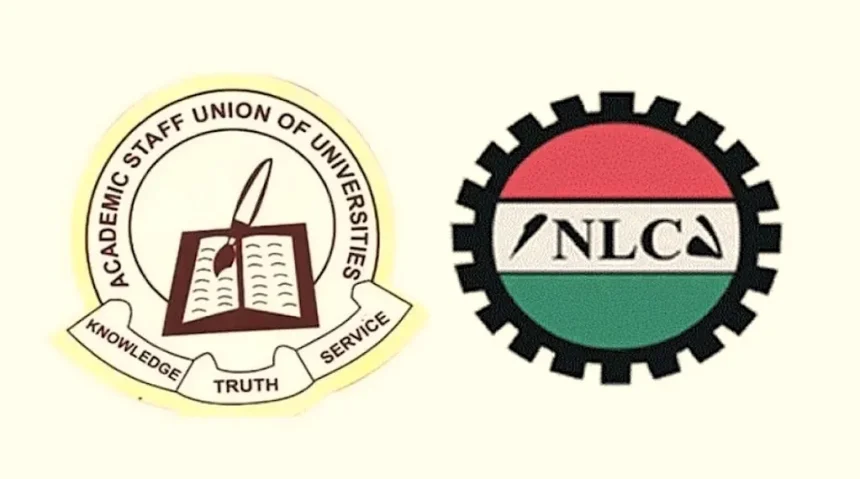he Nigeria Labour Congress (NLC) has declared full solidarity with the Academic Staff Union of Universities (ASUU) in its current industrial action, rejecting the Federal Government’s invocation of the “No Work, No Pay” policy as a punitive threat rather than a viable resolution.
In a public statement, NLC President Joe Ajaero described the strike as a direct consequence of the government’s failure to honour earlier agreements with university lecturers and other public sector workers.
He argued that lecturers are willing to work, but conditions and commitments by the government have been breached, making work untenable under the current circumstances.
“The breach of contract lies with the state, not the scholars,” the NLC declared, insisting that threatening to withhold pay for strike participation misrepresents the core of the dispute.
The union cautioned that should the government remain unresponsive after the two-week warning strike, it would convene emergency meetings with affiliates to devise further action.
Government Enforces “No Work, No Pay” — VCs Directed to Comply
Simultaneously, the Federal Government has ordered vice-chancellors of all federal universities to enforce the “No Work, No Pay” rule strictly.
The directive, contained in a circular signed by the Minister of Education, Dr. Tunji Alausa, mandates that VCs conduct roll calls and physical headcounts of academic staff, report those in attendance versus absentees, and withhold salaries for the period of absence due to the strike.
The circular also clarifies that members of other academic bodies not participating in the strike — such as CONUA and NAMDA — should continue to receive full entitlements.
The government asserted that the policy aligns with existing labour regulations on employee duties and remuneration during industrial action.
The Guardian Nigeria
ASUU Reacts: “No Threat Will Intimidate Us”
ASUU has rejected the government’s “No Work, No Pay” position, rejecting it as a coercive tactic.
In an appearance on Channels Television’s Politics Today, ASUU President Chris Piwuna said the union would not be intimidated by threats. “We don’t respond to threats, and nobody can threaten us,” he stated.
Channels Television
Piwuna emphasized unity among academic associations, including CONUA, NAMDA, SSANU, NASU, as well as polytechnics and colleges of education, in opposing attempts to divide them.
He said ASUU is still open to dialogue and expects government officials to engage substantively on the demands.
Impact on Universities: Exams Disrupted
The strike has already caused noticeable disruption in several federal universities. Ongoing examinations at institutions such as the Federal University Dutse, University of Jos, and University of Benin have been suspended or postponed.
Premium Times Nigeria
Some universities had just completed their exams before the strike took full effect, narrowly avoiding cancellations.
Premium Times Nigeria
Students have expressed concern about the postponement of final-year projects, defences, and scheduled papers.
Premium Times Nigeria
The uncertainty is exacerbated by the government’s enforcement of “No Work, No Pay,” making resumption of academic calendar activities contingent on how fast the industrial dispute is resolved.
Core Demands and Long-Standing Tension
The crux of ASUU’s grievances lies in long-unfulfilled promises and decades-long unresolved terms. Key demands include:
Completion and implementation of the renegotiated 2009 FGN-ASUU agreement.
Release of withheld salaries (three and a half months) and payment of outstanding salary arrears (25–35 %).
Payment of promotion arrears spanning multiple years.
Revitalisation and sustainable funding of public universities.
Although several committees have been set up over time to address these issues — notably the Yayale Ahmed committee established in October 2024 — little has been effectively implemented, according to ASUU’s account.
Premium Times Nigeria
In fact, ASUU says the government delayed acting on the committee’s report and later proposed a new draft that deviates significantly from what the committee recommended.
